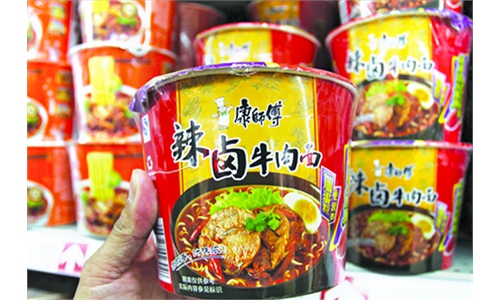Leakage of personal information the most troublesome problem to Chinese consumers: China Consumers Association

Photo: VCG
Leakage of personal information is the most troublesome problem to Chinese consumers, as was revealed among other problems by a survey released by the China Consumers Association on the annual World Consumer Rights Day. But most respondents believe the consumer environment is getting better.
With the theme of “boosting consumer confidence” for this year’s themed activities, 80 percent of the respondents of the survey are satisfied with the domestic consumer environment, and most interviewees acknowledge the strength and effectiveness of the supervision on consumption activities, with significant increase in trust in online consumption.
However, there still exist some weak points in the consumer environment that need urgent improvement. Such weak points include leakage of personal information which account for 37.3 percent, top all kinds of problems that trouble Chinese consumers.
Other problems include serious waste in consumption, such as food and beverage waste, which accounts for 28.3 percent, and which is followed by rumors on the internet, accounting for 26.6 percent.
Other issues of concern in the consumption environment include prepaid card merchants making off with money and false or misleading advertising.
Despite of these problems, the survey also shows that as much as 62.9 percent of consumers think their family income will increase over the next year and expect a larger growth of family expenditure than saving, with a clear trend of the release of the consumption drives. About 60 percent of consumers think there is a high possibility of revenge spending while 30 percent hold the prudent attitude toward the popular consumer credit.
Meanwhile, in terms of the protection of consumers' rights, the survey shows that Chinese consumers’ awareness of rights protections has continued to strengthen and nearly 80 percent of consumers show satisfaction toward the results for safeguarding their legitimate rights and interests.
In another survey conducted among 1,000 consumers by yicai.com, 42.45 percent encountered incidents that their rights and interests were infringed upon over the past year. Consumer electronics, tourism and aesthetic medicine were the top three areas involved in the most disputes.
The survey also shows that the infringement of rights and interests that consumers encountered in offline consumption mainly involves the aspects including service quality, price, false advertising, refund and post-sale problems, commercial fraud, one-sided clause and commodity quality.
About 64 percent of consumers said they encountered disputes in consumption of consumer electronics and home appliances, 57.94 percent said they had disputes involving tourism and hotels, another 51.08 percent said they had disputes in consumption of medical aesthetic services.
In terms of the infringement of rights and interests in online consumption, false advertising and commercial fraud are the top two problems which are followed by charging with no reason and coupon fraud.
The survey concluded that 70.29 percent infringement on consumers’ rights and interests stem from weak awareness of the protection of rights and interests, 36.96 percent due to too low costs of violating the laws and regulations, 30 percent due to poor quality of merchants and 24 percent for the lack of capability to distinguish between truth and false.
The good news is that 60.1 percent of interviewees said their rights and interests were protected after they complained to relevant platforms and departments, which shows that protection for consumers’ rights is effective.
Global Times



